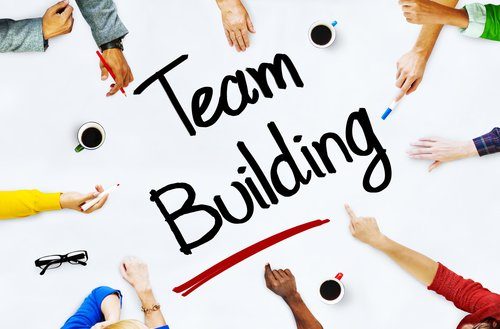
In today’s dynamic and interconnected workplace, building stronger teams is essential for driving innovation, productivity, and overall success. Effective team building goes beyond simple icebreakers and trust falls – it requires thoughtful planning, intentional strategies, and a deep understanding of team dynamics. In this article, we’ll explore strategies 團隊活動遊戲 for effective team building that foster collaboration, trust, and camaraderie among team members, ultimately leading to stronger, more cohesive teams.
Understanding the Importance of Effective Team Building
Strong teams are the backbone of any successful organization. They facilitate collaboration, creativity, and problem-solving, driving the achievement of common goals and objectives. Effective team building enhances communication, builds trust, and fosters a sense of belonging among team members, ultimately leading to higher morale, increased engagement, and improved performance.
Strategies for Effective Team Building
- Clarify Team Goals and Objectives
Clear goals and objectives provide a shared purpose and direction for the team. Ensure that every team member understands their role in achieving these goals and how their contributions contribute to the overall success of the team. - Foster Open Communication
Open and transparent communication is crucial for building trust and collaboration within teams. Encourage team members to share ideas, feedback, and concerns openly, and ensure that everyone has an equal opportunity to participate in discussions. - Promote Psychological Safety
Psychological safety is the foundation of effective team dynamics. Create a supportive and inclusive environment where team members feel comfortable taking risks, expressing their opinions, and making mistakes without fear of judgment or reprisal. - Encourage Collaboration and Knowledge Sharing
Facilitate collaboration and knowledge sharing among team members by creating opportunities for cross-functional collaboration, brainstorming sessions, and peer learning. Encourage team members to leverage each other’s strengths and expertise to achieve common goals. - Build Trust and Rapport
Trust is essential for building strong relationships and effective teamwork. Foster trust among team members by being transparent, reliable, and accountable for your actions. Encourage teamwork and cooperation by recognizing and celebrating individual and team achievements. - Invest in Team Building Activities
Organize team building activities and events that promote teamwork, communication, and collaboration. Whether it’s a team retreat, a problem-solving challenge, or a volunteer project, team building activities provide valuable opportunities for team members to bond, build rapport, and develop trust. - Lead by Example
As a leader or manager, lead by example and demonstrate the values and behaviors you expect from your team members. Be approachable, empathetic, and supportive, and encourage a culture of openness, respect, and accountability within the team. - Provide Regular Feedback and Recognition
Provide regular feedback and recognition to team members for their contributions and achievements. Acknowledge their efforts, celebrate milestones, and provide constructive feedback to help them grow and develop professionally. - Embrace Diversity and Inclusion
Embrace diversity and inclusion within the team by recognizing and valuing the unique perspectives, backgrounds, and experiences of team members. Foster a culture of respect, empathy, and understanding, where everyone feels valued, respected, and included. - Continuously Improve and Adapt
Finally, continuously evaluate and adapt your team building strategies based on feedback and outcomes. Be open to trying new approaches, experimenting with different activities, and learning from both successes and failures.
Conclusion
Effective team building is a journey, not a destination. By implementing these strategies and principles, organizations can build stronger, more cohesive teams that communicate effectively, collaborate seamlessly, and achieve outstanding results. From clarifying team goals and fostering open communication to promoting trust, collaboration, and inclusion, effective team building lays the foundation for a positive and productive work environment where every team member feels valued, empowered, and supported. As organizations continue to navigate the complexities of the modern workplace, prioritizing effective team building as a strategic imperative will be essential for driving success and fostering a culture of high performance and continuous improvement.